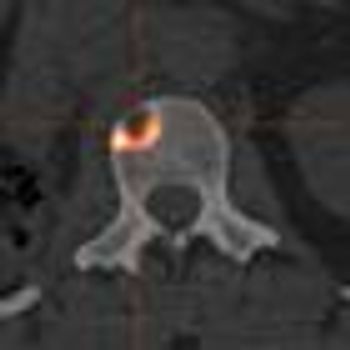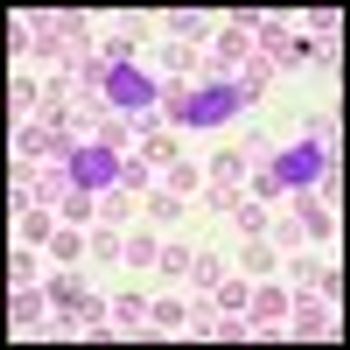Articles by Anna Azvolinsky

The targeted, oral therapy crizotinib (Xalkori), has been granted priority review by the US Food and Drug Administration (FDA) for the treatment of patients with metastatic non-small cell lung cancer (NSCLC) who have c-ros oncogene 1 (ROS1)-rearranged tumors.

The combination of radiation therapy plus cetuximab had higher rates of acute toxicity among patients with locally advanced squamous cell carcinoma of the head and neck compared with radiation therapy plus cisplatin.

Ahead of the 57th ASH Annual Meeting & Exposition, December 5–8, 2015, Jeffrey Tyner, PhD, discusses his latest research on screening tumor cells derived from cancer patients to help guide better treatment decisions.

Advanced lung cancer patients who have tumors with mutations in the epidermal growth factor receptor (EGFR) gene may benefit from the combination treatment of erlotinib standard therapy plus tivantinib.

The targeted therapy, nivolumab (Opdivo, Bristol Myers Squibb), improved median overall survival by 5.4 months among patients with previously treated renal cell carcinoma (RCC) compared to standard of care everolimus (Afinitor).

A complex high-dose combination therapy is tolerable and effective in patients with aggressive B-cell lymphoma that has spread to the central nervous system.

Patients with EGFR-positive, non-small cell lung cancer (NSCLC) typically respond well to EGFR-targeted therapy, but eventually these tumors become resistant, leaving patients few options other than palliative care.

Inherited variants in an androgen transporter gene may determine the time to progression (TTP) for men with prostate cancer receiving androgen deprivation therapy (ADT).

Researchers have shown that reprogramming T cells to target glioblastoma in mice resulted in control of these tumors.

Neither sunitinib nor sorafenib reduced disease recurrence in patients with locally advanced renal cell carcinoma (RCC) when these agents were given to patients as adjuvant therapy, according to the results of a new study.

Genetic testing in metastatic non-small cell lung cancer (NSCLC) patients and subsequent molecular biomarker guided therapy is societally cost-effective compared to a chemotherapy treatment approach without molecular testing.

In a phase I trial, non–small-cell lung cancer (NSCLC) patients with tumors that expressed PD-L1 had significantly better outcomes with MK-3475 therapy compared with patients with PD-L1–negative tumors.

The ratio of two protein levels may predict clinical benefit of EGFR inhibitors. Low levels of a protein called Mig6 (mitogen-inducible gene 6) and high levels of EGFR corresponded to a higher clinical response rate and progression-free survival in a small prospective cohort of lung cancer patients treated with the anti-EGFR therapy gefitinib.

The FDA approved afatinib (Gilotrif) as a first-line therapy for patients with metastatic non-small-cell lung cancer whose tumors harbor certain mutations in the epidermal growth factor receptor gene.

Bone metastases result in poorer outcomes for those patients with advanced renal cell carcinoma (RCC), who were treated with a molecularly targeted therapy. The results were presented in two separate analyses at the annual ASCO meeting.

Relapsed or refractory chronic lymphocytic leukemia and acute lymphoblastic leukemia patients have shown durable responses of almost 2 years to a novel T-cell engineering technique developed at the University of Pennsylvania Perelman School of Medicine in Philadelphia.

Stereotactic body radiation therapy is being compared to standard surgery in a phase III trial in high-risk operable patients with early-stage non–small-cell lung cancer.

A study published online on May 10, 2011 in the British Journal of Cancer has shown evidence for a new prognostic factor in breast cancer: an increase in cancer stem cell population after primary systemic therapy. The study results indicate that putative cancer stem cells may be chemoresistant to conventional anthracycline-based chemotherapy and may have a role in disease progression following chemotherapy treatment.

A model example of personalized cancer therapy that has demonstrated improved patient outcomes is the use of anti-HER2 treatment. Breast cancer patients screened via molecular diagnostics and identified as having amplification of the HER2 gene generally have a poorer prognosis, but show better responses to anti-HER2 treatment.











